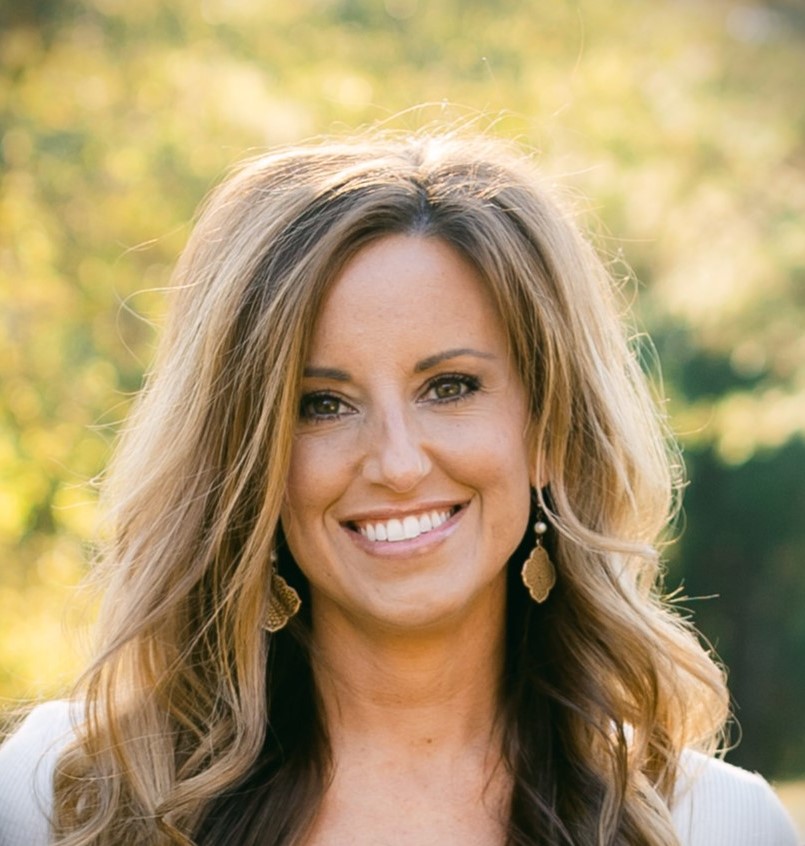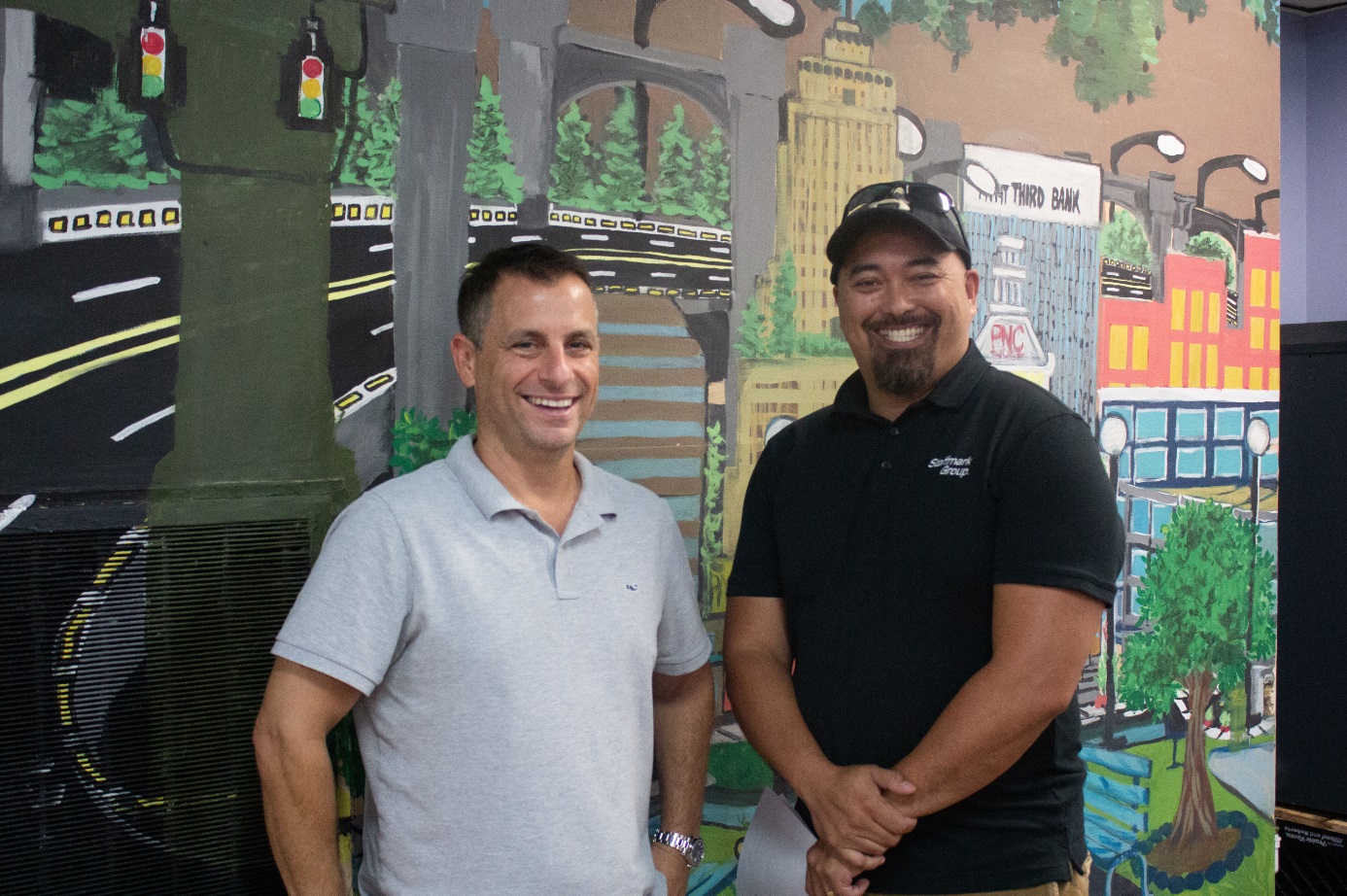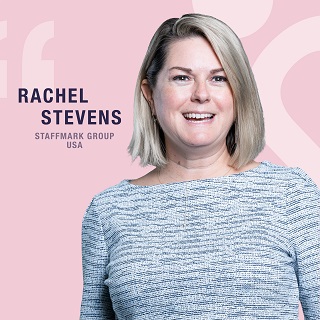Helping Americans with criminal records to rebuild their lives
For people exiting the U.S. justice system, finding work is a major step in rebuilding their lives – but it can be a huge challenge. Through the RGF Connect initiative Staffmark Group is breaking down prejudice and bias, building up communities. The program provides a fresh start for those who need it the most.

“If you think about it, all of us are just one bad decision away from leading a completely different life”, Audra Mahoney (Regional Operations Manager at Staffmark Group) says. How else can you explain that nearly 1 in 3 Americans have a criminal record. The vast majority of these people have not committed violent or sexual crimes. Many of them were just normal people, perhaps under pressure to provide for their family, of having grown up in difficult circumstances, perhaps without good role models.”
However, even relatively ‘minor’ offences can carry long prison sentences in many states. “And once you get out, your criminal record prevents you from re-entering the workforce. Almost 98 percent of companies in the US perform a very strict background check when hiring new colleagues. Making it almost impossible for this group to rebuild their lives. And leaving them vulnerable to making the same mistakes all over again.”
Sense of purpose
Through RGF Connect, Staffmark Group aims to break that cycle. Because everyone deserves a second chance. The RGF Connect program is designed to help those preparing to exit the U.S. justice system to build a solid foundation for their future. By working outside correctional facilities during the final stages of their incarceration, participants learn valuable skills, such as time management, communication, and teamwork – important prerequisites for finding and keeping work once they’ve completed their sentence. At which stage Staffmark Group helps them to find regular employment.
In early spring 2023, the program kicked off in Louisiana, Alabama, Florida, Tennessee and, just recently, in Texas. “Since then, we’ve already helped 41 employees to get their life back on track”, Rachel Stevens (Vice President at Staffmark Group) explains.
Mentorship and life skills
Once selected, the participants are matched with one of Staffmark Group’s clients. “After that, we continue to support our participants in order to set them up for success in the future”, Audra explains. And that support is not restricted to job-related skills. “For some it starts with knowing how to set up a bank account, how to balance and budget. We also help them to access existing financial support they may not be aware of, to help them pay for housing, food and energy bills.” The Staffmark Group mentors will also be alert to challenges that may arise at home, such as arguments with family members, or any other setbacks that may arise. In the near future, participants may also benefit from a buddy program, with previous participants who can share their experiences.
Convincing new clients
The biggest problem that people face upon leaving the U.S. justice system are strict background checks. Together with their current clients, Staffmark Group is trying to convince more companies to evaluate a person based on their skills and personality, not their criminal record. “Education is the best way to get new customers on board”, Audra says. “A lot of companies are facing real difficulty in finding workers and are willing to look outside of conventional hiring methods. We want them to appreciate what these people have to offer.”

At the same time, Staffmark Group is keen to point out the huge difference these companies can make in the lives of the program’s participants, Olsen Betron (Community Impact Manager at Staffmark Group) highlights. “Having a job reduces stress and can break the cycle that too many people are locked into. Stable employment can contribute to reduced substance abuse and domestic violence. On top of that, it improves local communities and economies as well. In the end, it all ties together. Companies find the workers they need when things are though and participants can finally rebuild their lives. Everybody wins.” And according to Audra and Olsen, the feedback from companies enlisted so far has been only exclusively positive.
Inspiring stories
Through RGF Connect, Staffmark Group has already changed the lives of so many people. The program provides participants with a sense of purpose and a positive outlook on their future, even before they have completed their sentence. They are given real, genuine opportunities to earn wages and to provide for their families, which can be a significant motivator to stay on the right path.
Olsen: “I hear great stories all the time. One gentleman struggled to find work when he got out of prison. He enlisted for the program and even though he had to walk three miles to get to the nearest bus stop every day to get to work, he powered through. He felt he was treated with dignity and respect. Eventually, he saved up enough money to buy a car.”
 Equally inspiring is the story of a participant who had grown up in a rough neighborhood of Chicago. Rachel: “He didn’t have a stable home environment, which is the case for a lot the participants who go through the program. He ran his own business to provide for his family, but got into trouble and ended up with an addiction that led him to be imprisoned several times, experiencing a lack of support over the years. Since participating in the program, he has got his life back on track. He provides for his aged mother, does her groceries, and established a relationship with his grandchildren.”
Equally inspiring is the story of a participant who had grown up in a rough neighborhood of Chicago. Rachel: “He didn’t have a stable home environment, which is the case for a lot the participants who go through the program. He ran his own business to provide for his family, but got into trouble and ended up with an addiction that led him to be imprisoned several times, experiencing a lack of support over the years. Since participating in the program, he has got his life back on track. He provides for his aged mother, does her groceries, and established a relationship with his grandchildren.”
Reconnecting people with their families is an important part of many participants’ stories. Rachel: “Many feel ashamed of the mistakes they’ve made. But there have already been examples of people who, once they had found stable employment and could provide for themselves, felt ready to reach out and re-establish contact with their families.”
The next step
 More and more states are jumping aboard the RGF Connect train. “Staffmark Group expanded their services to states like Texas and Arkansas and we have a potential new client in Georgia”, says Julie Litteral (Vice President Human Resources at Staffmark Group). “And Olsen has built up a relationship with a halfway house in Cincinnati that is keen to participate.” It just goes to show, the demand to help Americans with criminal records spreads wider and wider.”
More and more states are jumping aboard the RGF Connect train. “Staffmark Group expanded their services to states like Texas and Arkansas and we have a potential new client in Georgia”, says Julie Litteral (Vice President Human Resources at Staffmark Group). “And Olsen has built up a relationship with a halfway house in Cincinnati that is keen to participate.” It just goes to show, the demand to help Americans with criminal records spreads wider and wider.”
Olsen: “Each state, and even each county, uses different terminology and has different laws. There may also be practical hurdles, such as how to physically get participants from their facilities or halfway houses to the workplace? We’re trying to figure out a best practice on how to handle things for each state, and that takes time. After all, we don’t want to release a product that’s not finished.”
Yet it’s clear that the RGF Connect program will steadily expand its scope over the next few months and years. Julie: “The number of emails we receive grows larger by the week. People and our regional companies are reaching out because they want to do more. They can’t wait to get started.”
